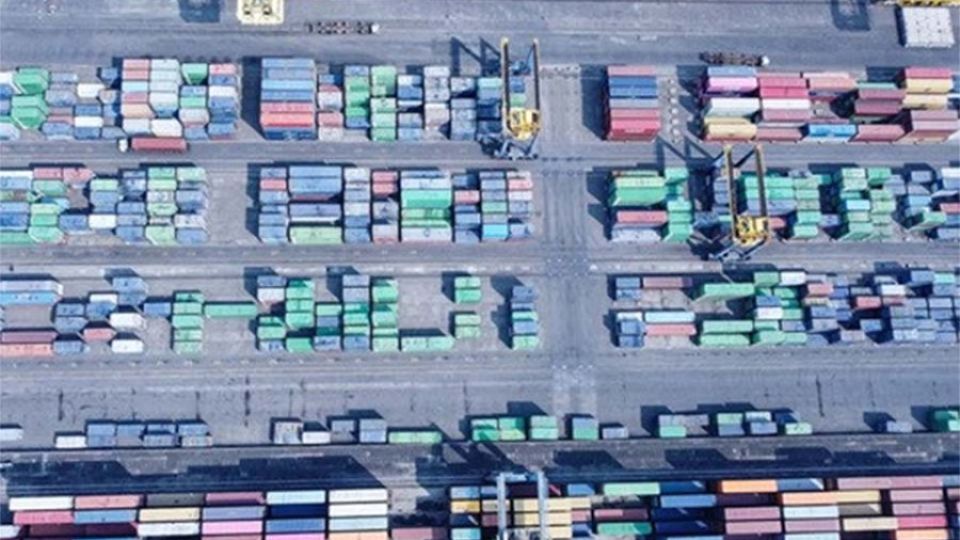November 13, 2024
JAKARTA – The election victory of Donald Trump to become 47th president of the United States came one day after Statistics Indonesia (BPS) announced on Nov. 5 that Indonesia’s economic growth fell to below 5 percent year-on-year (yoy) in the third quarter.
During his campaign, Trump laid out an economic agenda that economists and pundits have called extreme and dangerous. They warned that if fully implemented, it would have disastrous consequences, with its impact reverberating to other countries including emerging markets.
Indonesia cannot escape this impact.
Indonesia’s economic growth has been weakening since 2022, declining from 5.3 percent to 5.05 percent in 2023 and to 4.95 percent in the third quarter (Q3) this year. Consumption growth remained steady following strong recovery in 2022, registering growth at 4.9 percent throughout 2024. There has been concern over weakening buying power, as indicated by the yoy drop in headline inflation to 1.7 percent in October from previous months.
But core inflation (excluding volatile food and energy prices) has been increasing throughout the year, reaching the highest level of 2.2 percent last month. This indicates that the buying power of some consumer groups has not been affected by the slowing economy.
Government consumption and gross capital formation showed strong growth, but these were offset by higher negative net exports.
On the supply side, manufacturing growth weakened from 4.9 percent in 2022 to 4.5 percent in 2023, and then to 4.3 percent in Q3 2024. As the manufacturing purchasing managers’ index (PMI) has been declining for the last two months, growth in this sector is expected to continue weakening until the end of the year.
The Indonesian economy has been experiencing significant market volatility since speculation intensified in August about the US Federal Reserve rate cut. Capital inflow surged, the rupiah strengthened and the exchange reserve reached a record that month.
But as expectation increased about Trump’s victory in the US presidential election, capital flows reversed and the rupiah fell. Sell-off by foreign investors in the Indonesia Stock Exchange pushed the index down 6 percent in the two weeks since Oct. 22, dropping 7.3 percent from its peak on Sept. 20. The rupiah fell against the US dollar from 15,671 on Oct. 20 to 15,919 on Nov. 7.
Trump’s plan to impose 10 percent tariffs on all imports to the US and 60 percent on imports from China will increases prices for US consumers. His plan to deport millions of illegal immigrants will cause labor shortages and higher wages.
His plan to cut taxes for high-income groups and corporations will transfer a huge sum of income and purchasing power to American consumers and businesses, which could push up demand. His tax cuts will cost trillion of dollars at a time when the US budget deficit is growing and the national debt is on an unsustainable trajectory, pushing interest rates and bond yields higher.
These inflationary policies can potentially set off a conflict with the Fed that could reverse the interest rate trajectory. The imposition of higher import tariffs could trigger retaliation from other countries, expanding the trade war.
The Trumponomics agenda, if executed vigorously, will make the world economy more fractured, further disrupting global supply chains and further pushing down global growth. And higher inflation could again prompt central banks to hike interest rates, resulting in global tightening.
Although Trump might not be able to execute the entirety of his economic agenda, his policies’ implementation could be another headwind for the Indonesian economy, impacting three particular areas.
First, it will directly impact Indonesian exports to the US, the country’s third-biggest export destination after China and ASEAN. In January-September 2024, exports to the US grew 10 percent yoy to US$19.1 billion. Unlike exports to other countries, which are mostly commodities, Indonesian exports to the US are mostly manufactured products, such as garments, footwear, rubber products and electronics.
A 10 percent tariff on Indonesian exports to the US would be a big blow for manufactured products. Given Trump’s distaste for trade negotiations, Indonesia cannot expect Trump to continue reviewing the country’s access to the US generalized system of preferences (GSP) to benefit Indonesia.
Second, Trump’s plan to impose a 60 percent tariff on imports from China, on top of President Joe Biden’s plan to triple tariffs on steel and aluminum and double tariffs on semiconductors, electric vehicles and solar panels, could push back China’s economic growth, which grew only 4.6 percent yoy in Q3 2024, below expectations.
Indonesian exports to China are mostly commodities, such as coal, palm oil, petroleum products, natural gas and rubber, as well as minerals like nickel and copper. Up to September 2024, Indonesian exports to China fell 6 percent yoy to $42.5 billion.
It is also possible that China might divert exports of its goods restricted in the US to other countries including Indonesia with artificially low prices, which would add competitive pressure to Indonesia’s domestic goods.
Third, market volatility and a tight global financial condition resulting from Trumponomics will put pressure on Bank Indonesia (BI) to take appropriate monetary policy responses. BI will then face a trade-off in its monetary policy: It could continue its accommodative monetary policy to stimulate economic growth or maintain its current policy to fend off capital outflows and achieve exchange rate stability.
Both policy choices come with their own risk, and it will require BI’s ingenuity to opt for the best.
In the face of more headwinds, the government has to act urgently to continue fiscal consolidation and economic reforms, especially in investment and trade. The question is: Will the new cabinet, a bloated institution that is being reorganized, be up to the task?


